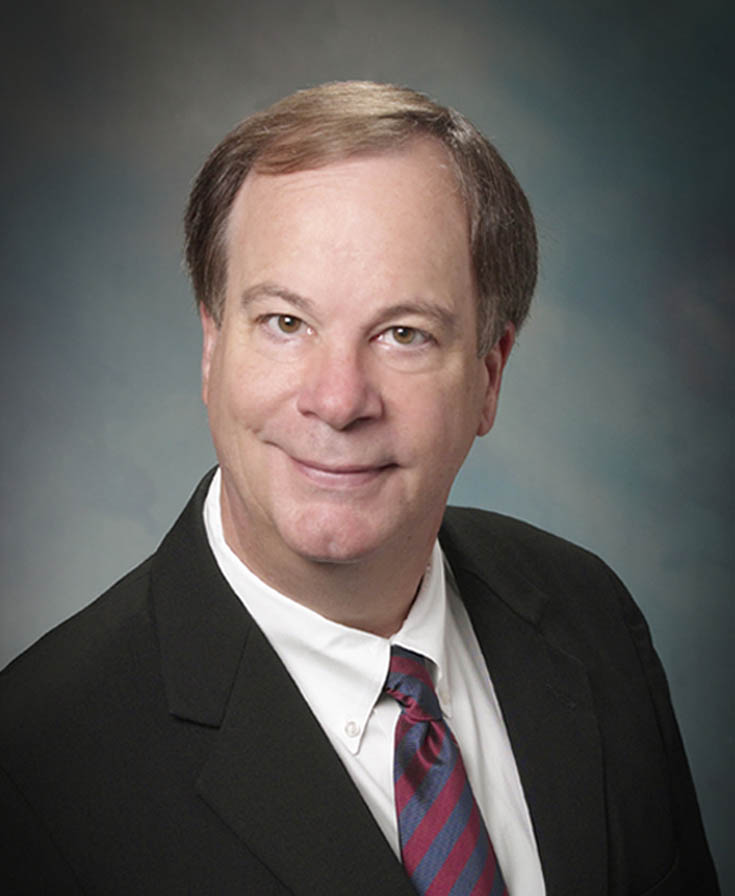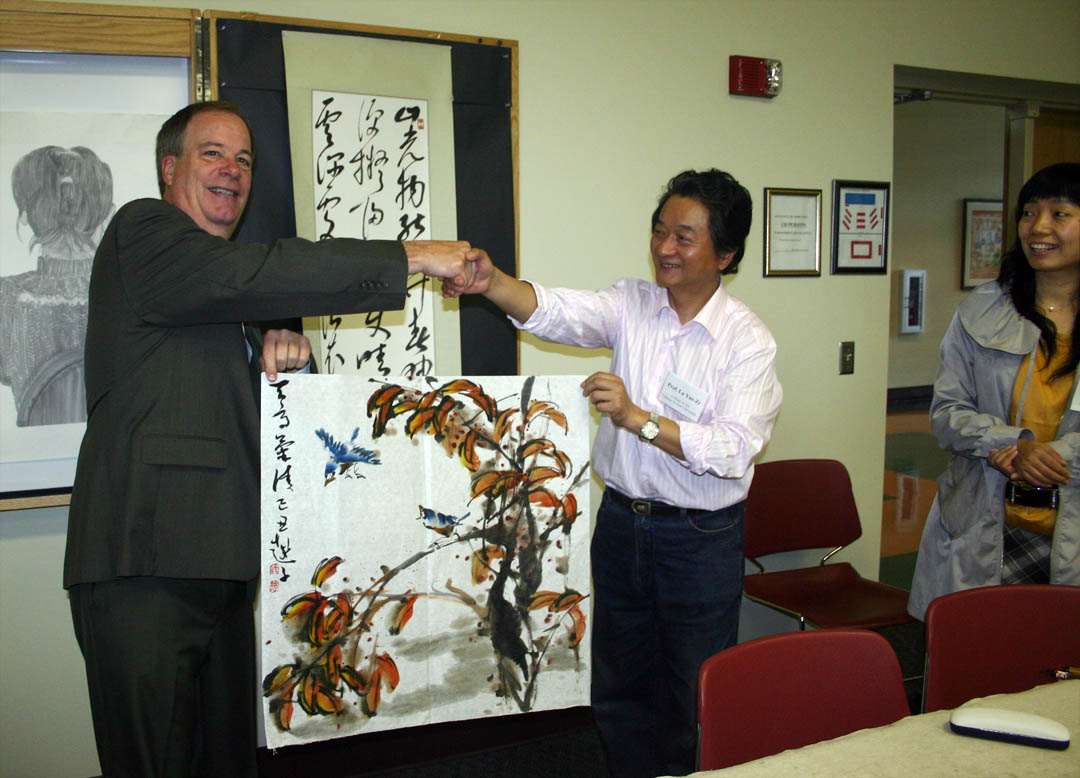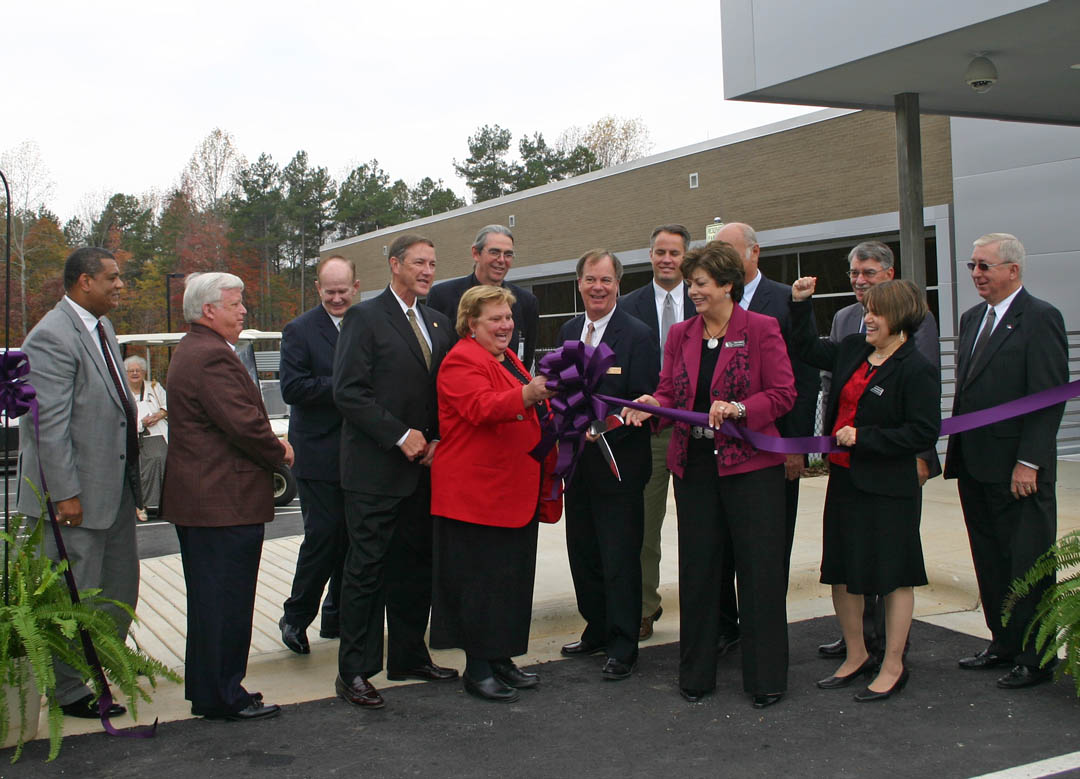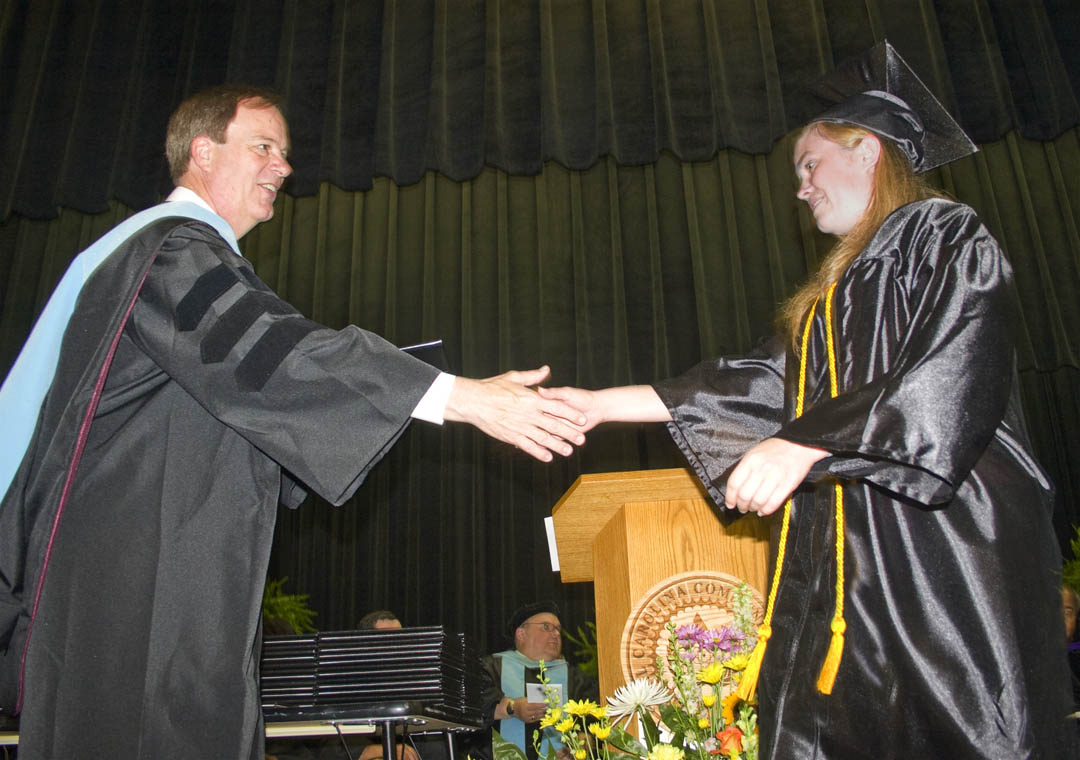College News
CCCC's Marchant focused on the future
Notice: This article is older than 12 months. Names, contact information, programs, titles, etc. might have changed. If you have any problems please call the main college number, 1-800-682-8353, and we will be happy to direct you accordingly.

click image to enlarge ⊗
Dr. Bud Marchant, president of Central Carolina Community College since August 2008, is putting his ... (more)

click image to enlarge ⊗
Dr. Bud Marchant, president of Central Carolina Community College since August 2008, instituted a ... (more)

click image to enlarge ⊗
Dr. Bud Marchant (center), president of Central Carolina Community College since August 2008, wields ... (more)

click image to enlarge ⊗
Dr. Bud Marchant, president of Central Carolina Community College since August 2008, reaches out to ... (more)
01.03.2012 • Admin, Faculty & Staff • College General
SANFORD - Dr. Bud Marchant, president of Central Carolina Community College since August 2008, describes the past 3 and 1/2 years as "a whirlwind."
Building on the foundation left by his predecessors, he is putting his own stamp on the college as he leads it into the future. The accomplishments under his leadership have already been significant. The college:
- was named in 2010 as one of the Top 50 community colleges in the nation by Washington Monthly magazine.
- became the first North Carolina community college to be a signatory to the Association for the Advancement of Sustainability in Higher Education's Sustainability Tracking, Assessment & Rating System (STARS). In 2011, it received the STARS Silver ranking for its sustainability efforts.
- became the first community college in the nation to establish a Confucius Classroom.
- launched the 4CNC-TV station in conjunction with county governments to serve the area and provide hands-on experience to broadcasting students.
- opened the Sustainable Technology Center and the joint college-community Chatham Community Library on the Pittsboro campus, and the Siler City Center.
- started Sustainable Agriculture classes at the West Harnett Center.
- opened a Firefighter Academy at CCCC's Emergency Services Training Center.
- moved the Lee County Continuing Education programs to and established a Lifelong Learning Center at the W.B. Wicker Business Campus.
- met or exceeded all Performance Measures set by the North Carolina Community College System.
- became the first community college in North Carolina to run a Workforce Investment Act program.
"CCCC has been a good fit for me," Marchant said. "The college has always had a reputation for excellence and innovation. I love the idea of quality instruction and service to the community, but I also love being on the cutting edge - being first, as CCCC has so often been. I have worked to continue that tradition."
Marchant was vice president for Educational Affairs at Piedmont Technical College, in Greenwood, S.C., prior to coming to CCCC. He started his career in education in public schools but, in 1984, moved into higher education. He focused his efforts primarily on business, technical and continuing education at several South Carolina community colleges.
Marchant also brought a strong background in economic development, having served in South Carolina as an executive director of a chamber of commerce, chairman of an economic development commission, and as a member of several boards involved in economic and community development.
"From this involvement, I really saw how important it is for the community to be involved in setting educational goals," he said. "People have to have an education to get jobs. You have to have business and education work hand-in-glove to make sure education is delivering what the community needs."
Central Carolina Community College is celebrating its 50th anniversary during the 2011-2012 academic year. Part of that is looking back at the great vision and accomplishments of those who created and built the college into what it is today. Part of it is looking to the future, Marchant said.
"Central Carolina Community College will continue to empower people for success in the workforce or the university," he said. "It will serve as a catalyst for personal, community, and economic development. It will also be a provider of cultural enrichment."
Plans are already in place to move the college forward and increase its partnerships with and service to its communities in the areas of:
-
Economic development
"We are an integral partner in the economic development of Lee, Harnett, and Chatham counties and will continue to be," Marchant said.
Caterpillar's Sanford plant is among the many that have worked closely with the college in workforce training.
"Dr. Marchant is a respected educational leader and an outstanding asset within the communities he serves," said James P. Brophy, plant manager. "His vision, proactive engagement and support over the last several years played a key role in Caterpillar's ability to expand. Bud's practicality and common sense provide for strong and secure business partnerships that are sustainable. The new Lee County Innovation Center, in partnership with Lee County Economic Development, is another tangible example of the role Dr. Marchant plays not only in education, but also in job creation."
-
Programs
The college plans to expand the Associate Degree Nursing program because there is always a long waiting list. A physical therapy assistant program is also planned. Future plans include offering an associate degree in fine arts, including theater, sculpture and pottery.
"We are looking into integrating technology into everything we do," Marchant said. "Our Distance Education program is one of the best in the state and almost 20 percent of our students take their classes that way."
-
Facilities
Improvement of the appearance of the campuses is underway.
A new Health Sciences Building will soon rise in Lillington. In the future, the Lee County Campus will add a new Continuing Education Building and adjoining Shop Building. An Allied Health Building, Library, and an amphitheater are also in the Master Plan. Eventually, Kelly Drive will be rerouted around the campus and the section now bisecting the campus will be made into a pedestrian walkway.
Marchant said a possible expansion and/or upgrade of the Dennis A. Wicker Civic Center is being considered to make it even more of an economic asset to the community and region.
-
Sustainability
"I am a strong proponent of sustainable programs and practices," Marchant said. "Sustainability is a college-wide effort at CCCC. We were the first to teach green in the N.C. Community College System. We are also living it by working to reduce our carbon footprint, recycling at all campuses, and installing energy efficient lighting. The new Chatham Campus buildings are all LEED-certified and it is the first campus in the NCCCS to have a solar array on three of the buildings. The Sustainable Agriculture program has been expanded to the West Harnett Center."
-
Community
"Our primary focus will always be on meeting the training and education needs of our communities, but I see a large place for the college as a cultural resource," Marchant said. "We want people to connect with the college that may not be seeking a degree. That is why we want to have events and add features that will bring more people onto our campuses, such as walking trails and other amenities."
Sanford Mayor Cornelia Olive has been a strong supporter of CCCC and Marchant's leadership.
"First, I have just been amazed and enthralled with the programs we've had with the Confucius Classroom that Dr. Marchant established - the exposure to Chinese culture," she said. "We have a global economy and the more we can learn, the more opportunities we have, it's good to take advantage of them. Second, as an Economic and Community Development board member, Dr. Marchant has pointed out some of the things that we need to do to get past our comfort zone and be realistic about the future. He sees the value in marketing ourselves because of all the attributes we have, such as our excellent location for industries. Third, having the college here and willing to do the job training and help prepare people to assimilate into the community has been invaluable."
Categories
- Admin, Faculty & Staff Category
- Arts & Entertainment Category
- Clubs Category
- College & Community Category
- College General Category
- Continuing Education Category
- Curriculum Programs Category
- Distance Education Programs Category
- Facilities/Buildings Category
- Finances Category
- Foundation Category
- Graduations Category
- Lee Early College Category
- NCCCS Category
- SGA Category
- Special Events Category
- Sports Category
- Students/Graduates Category
- Uncategorized Category
Archives

